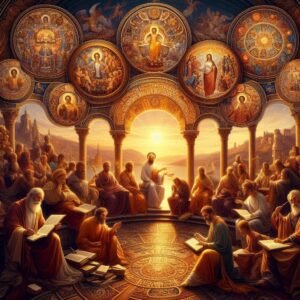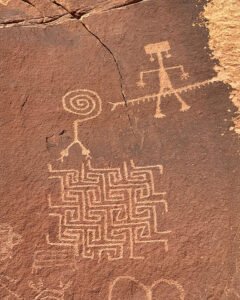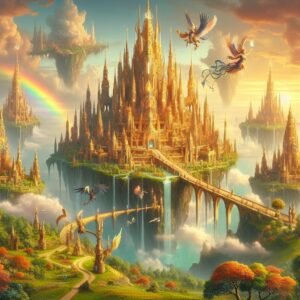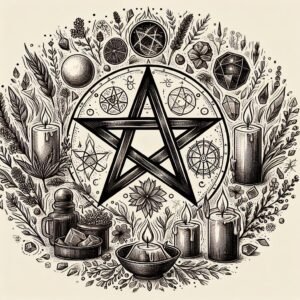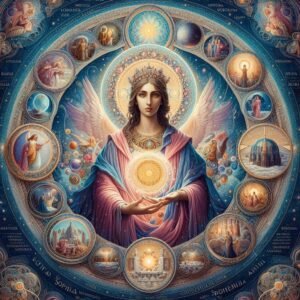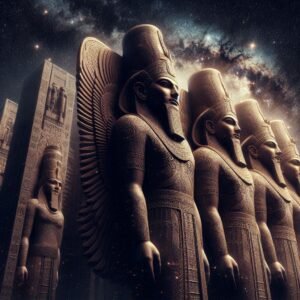
Jesus spoke of the Kingdom Within. This is related to, but not, the kingdom of God. Did any scholars realise this? Did any of them realise that the Kingdom of God holds many kingdoms, and each of us has a Kingdom within God’s kingdom?
The route to finding this inner kingdom, is within the self, it can’t be found with external knowledge, the work Jesus spoke of as being needed to be done, included the discovery of the kingdom within, which in psychology has been called self-transcendence.
The outcome of Christian scholarly debate
The concept of the “Kingdom Within” has been a subject of theological exploration and scholarly debate for centuries. This phrase is often associated with Jesus’ teachings in the Christian scriptures, where the Kingdom of God is described as a realm not of this world, but within the individual. Scholars such as Nicholas Perrin have examined this concept through a biblical theology lens, suggesting that the Kingdom is both a present reality and a future hope, a dynamic domain where God’s will is done on earth as it is in heaven. Other scholars, drawing from New Testament theology, have argued that the Kingdom represents God’s sovereign rule, which Jesus embodied and enacted through his life and teachings. This view posits that the Kingdom is already present in the lives of believers, yet it will be fully realised in the eschatological future.
The Kingdom Within is also understood as a transformative experience, where the individual undergoes a radical inner change, aligning with God’s will and purpose. This interpretation is supported by the works of scholars who emphasize the ethical and spiritual dimensions of Jesus’ message, suggesting that the Kingdom is less about external structures and more about internal transformation and renewal. The debate among scholars also touches on the eschatological aspects of the Kingdom, with some arguing that Jesus’ teachings point to an imminent intervention by God in human history, reshaping creation and fulfilling divine promises.
Overall, the scholarly exploration of the Kingdom Within reveals a number of interpretations, each contributing to an understanding that tends to conflate these kingdoms in a way that ultimately shows a lack of understanding born of a lack of direct knowledge, and therefore assumption.
This lack of insight means their words tend to hinder rather than help. They seem to assume the kingdom within is unreachable. That (again) followers should wait until the end to have Jesus show them their kingdom. This is completely at odds with Jesus’ teachings, and it has helped drive the mistranslation of the bible. One simply has to compare Bryce Haymond’s translation of 1 Corinthians 15 with most Bibles to see the difference between what we have been told by those Christian Scholars and what can be done with the help of divine inspiration.
Jesus told us that the Kingdom Within can be obtained by anyone who chooses to embrace unconditional love of all. Christianity asks us to wait, and obscures the original words of Jesus, to promote their own assumptions and biases. Clearly, they could not find their kingdom, clearly they had no unconditional love.
The search for the Kingdom Within as an act of self-transcendence
The discovery of the kingdom within and the concept of self-transcendence both point towards a profound inner realization and transformation. The kingdom within, a term often associated with spiritual and religious contexts, refers to the discovery of a deep, inner resource or truth that lies at the core of one’s being. It is likened to finding a treasure within oneself that, once discovered, can lead to a life of greater fulfilment and purpose. This inner kingdom is not a physical space but a mystical one, representing the realm of personal enlightenment and inner peace. If you can find, and actualise your kingdom within, you will find your path back to source, back to true self, back to the place some think of a heaven.
Similarly, self-transcendence is about moving beyond the individual self and its limited perspective, reaching out to connect with something larger and more universal. It involves expanding one’s boundaries to include a broader sense of identity and purpose. This could mean identifying with humanity as a whole, nature, the universe, or a divine presence. Self-transcendence is often described as the highest form of psychological development, where one’s sense of self is extended to encompass wider aspects of existence.
The discovery of the kingdom within is akin to the realization of one’s own spiritual lineage and the subsequent unity with the divine. This inward journey is marked by a profound sense of self-awareness and connection to a lineage that transcends the individual, leading to an experience of oneness with the greater divinity.
Similarly, transpersonal self-transcendence involves expanding beyond personal limitations and ego boundaries, embracing a higher reality that encompasses all existence. Both paths, though articulated differently across various philosophies and teachings, converge on the same fundamental truth: the dissolution of the separate self and the emergence into a state of unity with the all-encompassing divine essence.
This unity is not merely a conceptual understanding but a lived experience that transforms one’s perception of self and other, revealing the interconnectedness of all life. It is a recognition that the individual soul is a reflection of the divine, and in this reflection, there is no separation—only a continuous dance of creation and discovery that leads back to the source.
The journey within to discover the kingdom is mirrored by the outward expression of transpersonal self-transcendence, both revealing the inherent divinity that lies at the core of human existence. Through practices such as meditation, prayer, and contemplation, individuals can peel away the layers of ego and illusion, uncovering the spiritual lineage that binds them to the divine.
This process of self-discovery and expansion is not linear but cyclical, with each insight and experience further deepening one’s understanding and connection to the divine. In essence, the discovery of the kingdom within and transpersonal self-transcendence are two facets of the same spiritual gem, reflecting the multifaceted nature of the divine and the myriad paths that lead to its realization.
Individuation as the search for the Kingdom Within
Carl Jung’s concept of individuation presents a psychological parallel to these spiritual concepts. Individuation is the process by which a person integrates the different aspects of their psyche, including the conscious and the unconscious, leading to the development of a unique, individual self. Central to this process are the personal archetypes, which are universal, innate patterns of behaviour and thought that reside in the collective unconscious. By acknowledging and integrating these archetypes, an individual can achieve a sense of wholeness.
The bridge between the spiritual discovery of the kingdom within and Jung’s individuation can be seen in the transformative journey towards self-realization. Both paths involve a deep introspection and a reconciliation of the inner and outer worlds. The spiritual path seeks to dissolve the ego, allowing one to experience a profound connection with the divine, while Jung’s individuation emphasizes the integration of the self, leading to a harmonious balance between the personal and the collective dimensions of existence.
In essence, both the spiritual and psychological journeys are about transcending the limited view of oneself as a separate entity and embracing a more expansive, interconnected state of being. Whether it is through the lens of spirituality or psychology, the ultimate goal is a profound understanding of oneself and one’s place in the larger tapestry of existence. Thus, while the language and methods may differ, the core aim of achieving a unified, transcendent state of consciousness remains a common thread, highlighting the similar meaning at the heart of these two theories.
The journey towards these realizations often involves a process of introspection, reflection, and a willingness to let go of superficial desires and attachments. It requires an openness to new perspectives and a dedication to personal growth. These paths encourage individuals to look beyond their immediate concerns and desires, to find meaning and purpose in a larger context.
What is a spiritual lineage?
Spiritual lineages have been understood as the transmission of spiritual knowledge, practices, and authority through generations.
One prominent example is the guru-disciple tradition found in Hinduism and Buddhism, where teachings are passed down from master to student. In Christianity, apostolic succession represents a lineage where bishops are consecrated through the laying on of hands, tracing back to the apostles themselves.
Sufism, the mystical branch of Islam, also has spiritual lineages known as tariqas, where Sufi masters transmit teachings to their followers. Indigenous cultures often have shamanic lineages, where knowledge and rituals are inherited within tribes or families.
Additionally, Kabbalah, a form of Jewish mysticism, is traditionally said to have been handed down from ancient sages.
These lineages, however, are not just about knowledge but also about the energetic and spiritual connection that is believed to be transferred along with the teachings. For example, with many people, their lineage is first explored by understanding self, and through that understanding, understanding how to love self, to the point that all the self is understood. This step may sound more like a psychological approach rather than a spiritual one. In many ways it is, but it lays down the foundation for future deeper spiritual connections.
One common connection is often called the “Higher Self”, this spiritual connection is often thought of as the oversoul, of the spiritual entity that chose to incarnate as you in the physical plane. However, it is better to understand that this higher self is a state of consciousness that itself needs to be actualised and embodied in order for higher states of consciousness to be discovered, and also embodied.
This process has often been called climbing Jacob’s ladder, as it is the process of climbing to God’s Kingdom, by the discovery of how one’s own kingdom came to be created, it’s a journey from source, to this physical reality that we experience as the self, in reverse.
Eventually, you will find the divinity that spoke your name into existence, this is the Godhead. If you have discovered, and truly love all of yourself, you will be allowed past the Godhead, and will cross the rainbow bridge to the heavens and the source levels, this is still just the start of your journey to self mastery and sovereignty, it is the first stage of self-actualisation.
Subscribe to our post updates - Don't miss a thing!!

